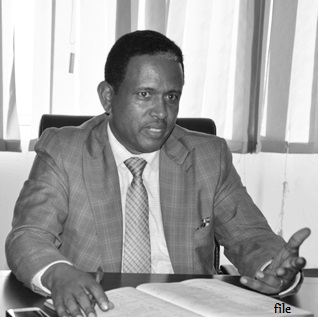Operational Scope of Civil Society Organizations Changed, Says Agency Director-General - ENA English
Operational Scope of Civil Society Organizations Changed, Says Agency Director-General

Addis Ababa July 6/2019 The political and economic reform Ethiopia has been undertaking for over the past one year has significantly changed the operational scope of civil society organizations, according to the Civil Society Organizations Agency.
Speaking to ENA, Civil Society Organizations Agency Director-General Jima Dilbo said the sweeping political reform in the country has significantly shifted the engagement of civil society.
According to the official, civil societies were considered as victims of foreign ideology and promoters of neo-liberal political ideology.
“Honestly speaking, there was no free environment for the engagement of civil societies. The Civil Society Law we had was strictly prohibitive of all civil societies from appealing for political advocacy and human right activities,” Jima added.
The director-general noted that the civil societies were forced to participate only on service delivery and limited development activities in Ethiopia. “The restrictions on civil societies had not permitted them to participate in enhancing democratic rights, which is the major duty of any civil society.”
However, the sweeping economic and political reforms that took place for over a year brought opportunities and changed the narration, encouraging the participation of civil societies in all spheres.
As a result, fundamental changes were made in revising the stifling law and strengthening positive alliance with the government as a critical stakeholder. “What the reform does is identify the major challenges of civil societies that were unable to play their role,” he stated.
The director-general added that the government has been positive to the civil society since the sector has untapped potential to support the current efforts in democratization, human rights activities and development.
All “ have seen the positive gesture from the government side to create alliance with the civil societies, and it is determined to facilitate enabling areas that the societies could engage in the country”.
Foreign and foreign-funded civil society organizations were also previously prohibited from engaging in advocacy and human rights work. “ The new law , in fact, specifically encourages organizations to be funded and engage in advocacy and lobbying with to laws and policies,” Jima stated.
The government undertaking reform has changed the Civil Society Organizations (CSOs) Law and replaced it by a more progressive one which freely engages civil societies, Population Health Environment (an NGO) Executive Director, Negash Teklu said.
He added that the Civic Engagement Policy which is expected to be endorsed could pave the way to strengthening various democratic institutions like human rights organizations, the Ombudsman, and the media, among others.
Over 4000 Civil society organizations are currently operating in Ethiopia and additional 500 organizations have got registered during the past three months alone.